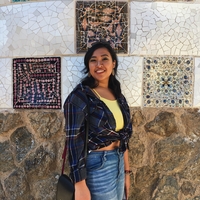What is "Lain-lain"? : The Construction of the Other in Contemporary Malaysia
This project aims to look at the ontological construction of the “Others” or “Lain-lain” racial category that exists within the Malaysian census and other forms of administrative documentation. By tracking its evolution over time as well as focusing on its current iteration, this project hopes to examine how individuals who fall under this label come to be defined by others and how they conceptualize their own identity within a racialized society. As racial categories are ascribed upon an individual at birth according to their patrilineal lineage, Malaysians lack the ability to choose which label they would like to claim. Thus, the individuals labelled “Others” may or may not agree with this categorization and there also exist individuals who have been denied this identity by the state.
Racial categorization in Malaysia exists in a wider context beyond the census. For documentation purposes in most sectors, like public health, education, and finance, Malaysians are required to declare their race as either “Malay”, “Chinese”, “Indian”, or “Others”. This limited set of options perpetuates the othering of individuals who do not fall within the categories of Malay, Chinese, or Indian - both literally and figuratively.
In recent years, youth-led discourse has called for the total removal of these categories. This particular age cohort that this project has chosen to focus on has seen a surge of political awareness since the 14th General Election in 2018. Recent political developments in Malaysia have proved to be rather turbulent as politicians have been “party-hopping” as they switch their political affiliations while others have taken the initiative to form a new political party. In the midst of these changes, it is evident that the political scene in Malaysia is still dominated race-based political parties. Thus, this project also aims to investigate how “Lain-lain” individuals are represented within this system and how increased youth awareness and engagement in politics will come to shape the political arena in the years to come.

Comments
Great Presentation
The research you've done here is super interesting, especially with your summation of three major points drawn from the interviews conducted. What are your thoughts on ways to increase inclusivity, such as in documentation/education?